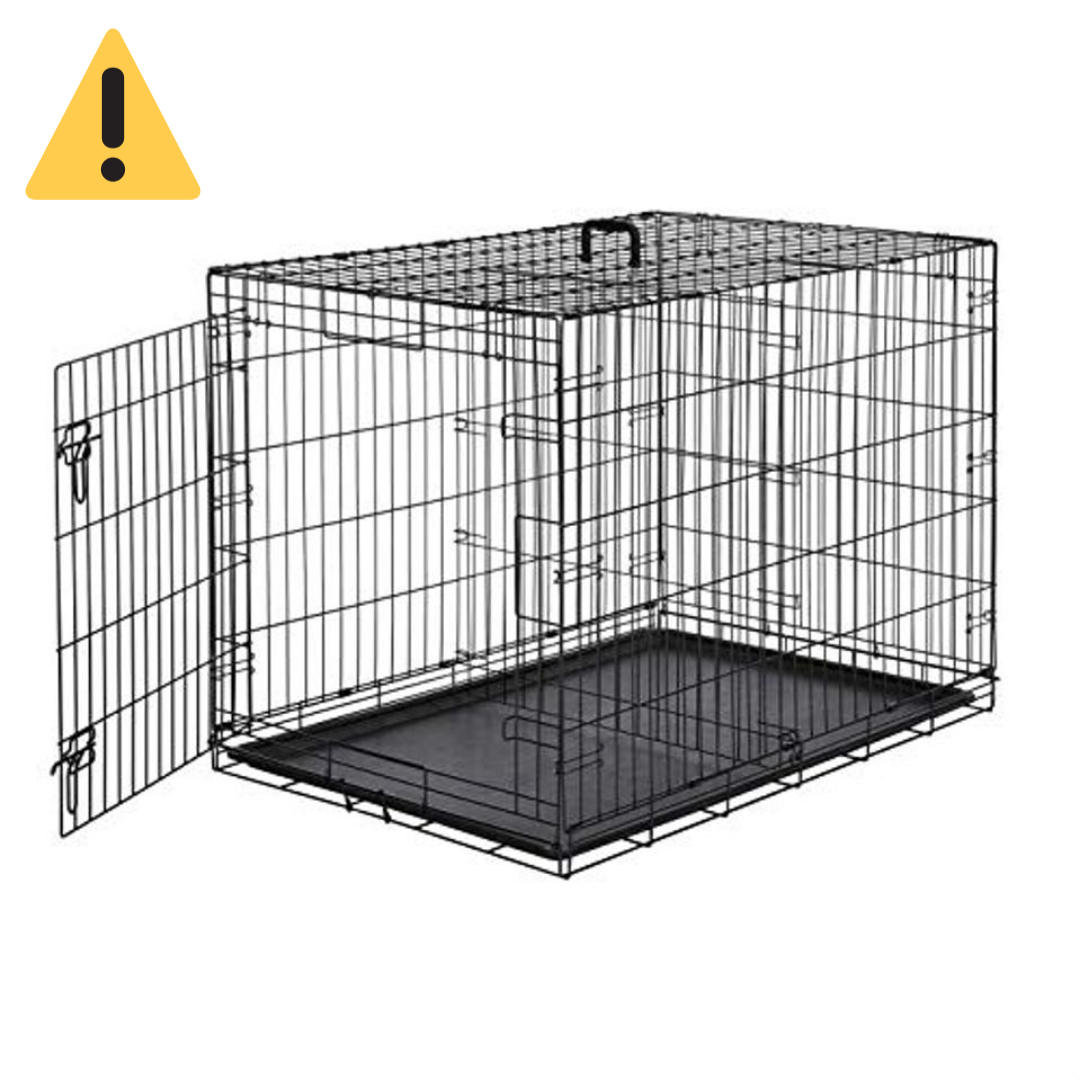With the prevalence of movements like #adoptdontshop, I sometimes feel a lot of guilt coming to me from people who really just want a puppy, or really just want a specific breed. Especially when talking to me, as a person who works with dogs, I think people sometimes brace for judgement. I’ve said it before and I’ll say it again, but sometimes when people are talking to me about dogs, it feels like more of a confessional than a conversation. So here’s your blessing, folks: you’re allowed to want a puppy. You’re allowed to want a specific breed. You’re allowed to buy a dog instead of adopting one. Honestly.
Just please, for the love of Dog, buy from an ethical, responsible breeder. Too many well meaning people buy their dogs from puppy mills or backyard breeders thinking they’re buying from an ethical breeder. Just like with dog trainers, not all breeders are created equal. Feel overwhelming? Unsure where to begin? Don’t even know what you’re looking for? I’m here to help.
A caveat to start us off: I am a dog trainer, not a breeder. This is not my field of expertise. But I get a lot of people asking me for help choosing a breeder, so I’m diving into some research and asking around; however, forgive me any errors or omissions – or, better yet, add some insight in the comments below! (And, for those of you thinking “but… Verena… #adoptdontshop!!” – I’m all for adoption too. Maybe another time I’ll write about choosing the right rescue dog for you. But today, we’re talking breeders.)
So, you want a puppy. Do you know what breed, or at least have a shortlist? If not, jump back a step. You can’t look for a breeder until you know what you want. (And, maybe another time I’ll write about how to choose a breed; in the meantime, Dogs 101 on YouTube is a great jumping off point.)
First things first: your breed of choice likely has a club full of knowledgeable people about the breed. For example, the German Shepherd Dog Club of America, or the Doberman Pinscher Club of Canada. Not only are these clubs full of knowledgeable people, they also are full of information (health, temperament, etc. for your breed of choice) and will often have a section for breed specific rescues and breed specific breeders that they vouch for. Do your research on your breed and their recommended breeders. Lots and lots of it. Some things to look for:
- They only breed dogs who are stable both in health and temperament. That means waiting for maturity – 2 years old, typically, for female dogs.
- Often a good breeder will either show their dogs or participate in dog sports. Does the breeder you’re looking at do this?
- Good breeders will not sell through pet stores. Full stop.
- They are happy to answer your questions.
- They match dog to owner based on mutual needs, not just selling a puppy to the first person to pay for it. Often this means there may be a wait list, and yes, your puppy will be expensive.
Find a breeder – or several, ideally – that you like the look of? Time to ask some questions. Here are some suggestions:
How long have you been breeding dogs?
Do you breed multiple breeds of dogs?
Typically good breeders specialize, so they’ll only breed one or two breeds.
What health issues are typical for your breed? What health testing do you do? Have you done this for the sire and dam of my puppy?
Unsure what kind of answer to expect? To repeat a theme here, do your research first and know what your breed should be tested for. OFA has a great resource for this.

What will you have done with the vet by the time I get the puppy?
Your puppy should come to you flea-free, dewormed, and should have had their first set of vaccinations. You should get vet paperwork for this.
Describe the temperament of the sire and dam, as well as any siblings or relatives of my (potential) puppy.
The temperament will depend on what kind of dog you’re getting and what you’re getting it for (ie. you’ll be looking for different things in a working dog vs a pet, etc.) but you definitely want to avoid any known fear, anxiety, or aggression issues.
Can I visit your home/kennel and see how and where the puppies are being bred?
Non-negotiable, this has to be a yes. And you should do it.
How old will my puppy be when I can take him/her home?
8 – 12 weeks is standard.
What organization are your dogs registered with?
You are likely to see either the CKC or the AKC, and some of those aforementioned breed clubs.
What kind of guarantee do you offer?
A good breeder should always be willing to take one of their dogs back, period. This should cover temperament issues, genetic issues, or even just if you don’t want/can’t keep the dog.
What will you require from me?
Some breeders will do home visits or interviews. They should be asking you nearly as many questions as you ask them. They will encourage you to do training with your dog – Canine Good Neighbour/Citizen exams are often encouraged – and they will make you sign a contract that you will spay/neuter your dog.
Describe my puppy’s life before I get him/her.
A good breeder will be treating the puppies like pets. They will live in the home, not out in a barn or in a crate. The puppy will be used to normal household life, noises, and experience. They will be used to handling.
Without a doubt, the most important aspect of dog husbandry comprises raising dogs to thoroughly enjoy the company and actions of people, especially children, men and strangers, i.e., raising “bomb-proof” dogs. – Dr. Ian Dunbar
Having worked with so many dogs with fear, anxiety, and aggression issues, this one really gets me. The first 12 weeks of a dog’s life are of utmost importance to lifelong socialization and confidence, and they’re with the breeder for the first 8 of those. The breeder should be socializing them to noises and handling and as many people as possible. Dr. Ian Dunbar has a great article about this. Adding to this, how does the breeder handle housetraining and crate training? This should be started before you get your puppy.
Breeders practicing the Puppy Culture program are likely doing this step right.
How often do you breed the dam?
Should be at most once a year, and only a limited number of times.
What are your goals with breeding? Do you have a breeding philosophy?
A dog (any animal)’s welfare should come before profit. Breeders will care about the well-being of their dogs, and their breed’s genetics.
Can I get references?
Ideally from vets or other owners of their dogs.
If you need an easy reference, The Humane Society has a handy checklist you can take a look at. Have I missed anything critical? Sound off in the comments below with your own suggestions. Do I have something wrong? Let me know and I’ll update this! My goal is to help you get the right puppy in your life, not just a puppy in your life.
Good luck, and happy researching!


